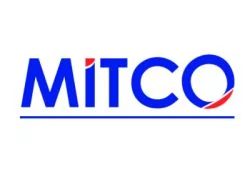Mauritius Puts Premium On Substance And Efficiency
Mauritius is not on the current OECD blacklist of tax havens.
This follows the Government's commitment to eliminate harmful tax practices by the end of 2005, embracing international tax standards for transparency, exchange of information and fair tax competition.
Furthermore, the report of Financial Action Task Force (FATF) has identified Mauritius as a co-operative country in the fight against money laundering.
As part of its commitment to the OECD to eliminate harmful tax practices, the Government has implemented certain immediate and long-term reforms for the offshore services industry. The long-term actions will be phased over the next five years. The measures announced in the budget speech 2000-2001 which affect International Companies are as follows: -
- International Companies will be precluded from issuing bearer shares.
- Members, directors, and officers of International Companies will henceforth be registered with the Registrar of International Companies
- Any change in members, directors and officers must be notified to the Registrar of International Companies
- The Registrar of International Companies may carry out inspection and audit of registered agents.
Other important changes are:
The Regional Headquarters Scheme
Government of Mauritius has introduced in March 2000 a Regional Headquarters Scheme to promote the country as a prime base for regional headquarters. The Scheme is aimed at corporations wishing to provide headquarters services to related companies in the region. Incentives include a ten-year tax holiday on foreign-sourced income and tax-free dividends.
Permanent Resident Scheme
Government has introduced a Permanent Residence Scheme to attract eligible foreign investors and high net worth individuals to take residence in the country, with incentives such as 14% income tax, duty free import of household effects and the right to buy property.
The Foreign Aviation Equipment (Ownership and Security Interests) Registration Bill
In order to diversify the offshore sector further, the Government of Mauritius will introduce the Foreign Aviation Equipment (Ownership and Security Interests) Registration Act.
The main object is to develop Mauritius as an International Aircraft Registration Centre given the existing legal and banking framework already in place in Mauritius. Registration will be extended to engines and parts.
Electronic Transactions Act
This Act has now been passed and aims to create an appropriate legal framework to facilitate electronic transactions and communications by regulating electronic records and electronic signatures. Security and data protection are important issues also addressed by the new legislation.
Economic Crime Anti-Money Laundering Act
This Act, which came into force in June 2000 provides for the establishment of an Economic Crime Office and for the prevention and punishment of money laundering and economic offences. It brings Mauritius into line with the best international practices and was a major factor influencing the FAFT view of Mauritius.
Board of Investment Act
Government has introduced the Board of Investment Act in order to promote and facilitate foreign investments and act as a one-stop service for the relevant permits. It will position Mauritius as a competitive destination for foreign direct investment.
Mauritius Poised To Become The Regional It Hub Of The Region
Mauritius is participating in the South Africa Far East (SAFE) project linking South Africa to Malaysia via Mauritius with a submarine fibre optic cable. This will be operational in October 2001 and will provide Mauritius with a submarine cable route to Europe and North America, dramatically increasing its bandwidth and its ability to compete in the offshore e-commerce world.
The Informatics Park built by the Government is now fully occupied and an E-Com centre of 10,000 square metres is being put up to accommodate booming demand for intelligent buildings from IT and internet operators.
The content of this article is intended to provide a general guide to the subject matter. Specialist advice should be sought about your specific circumstances.


